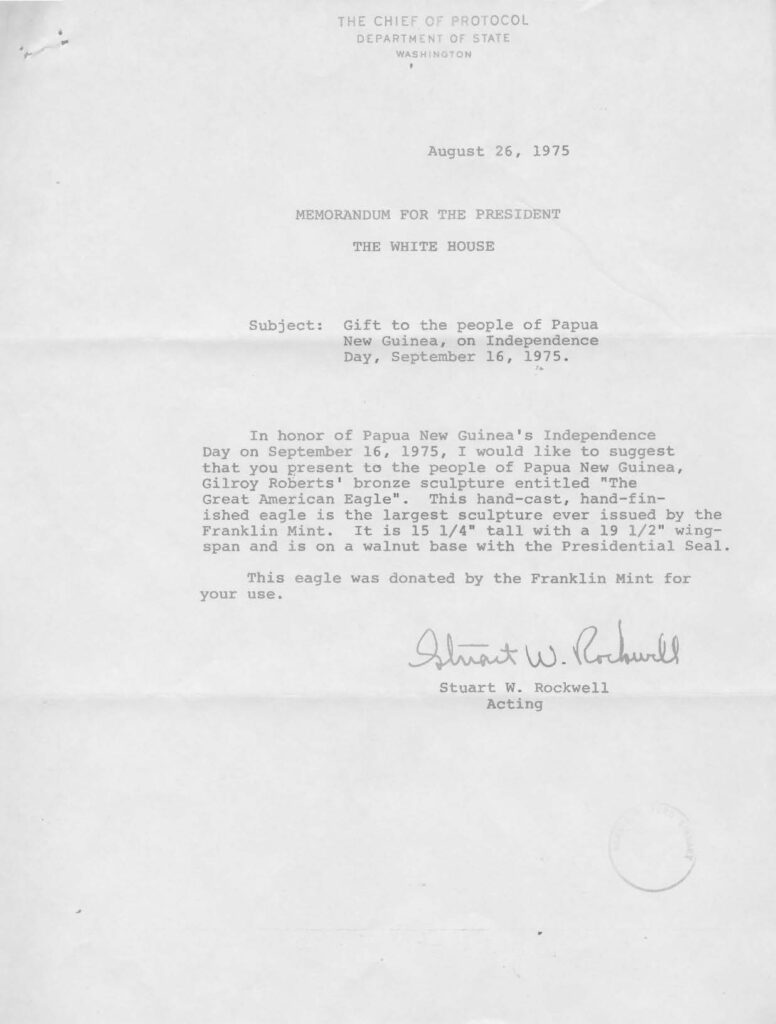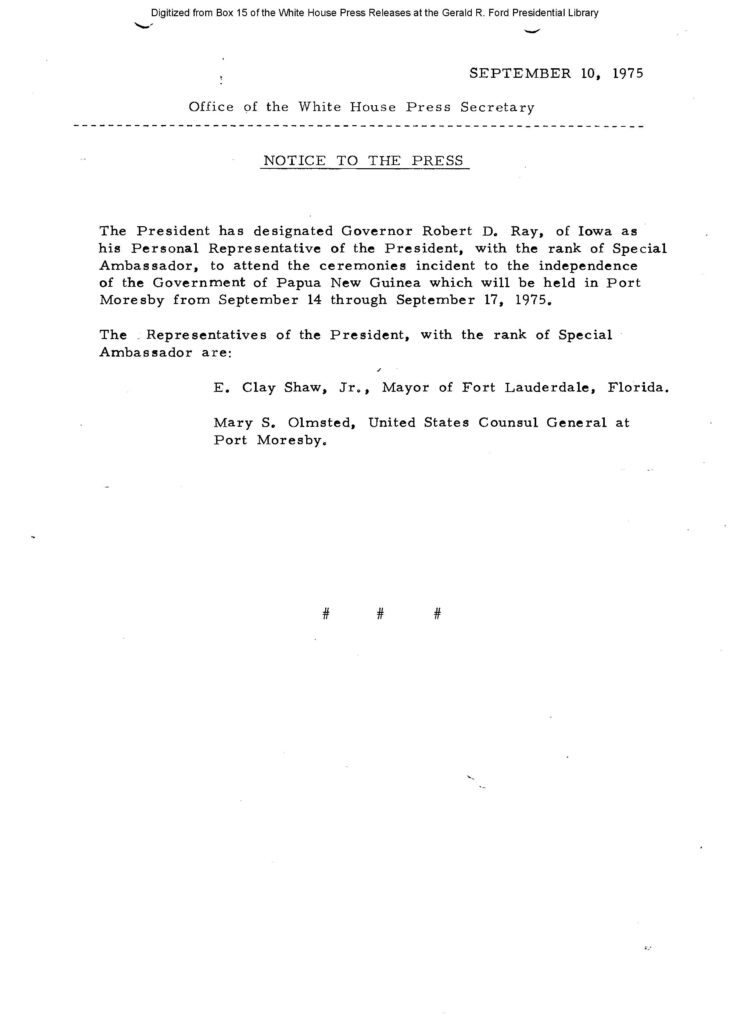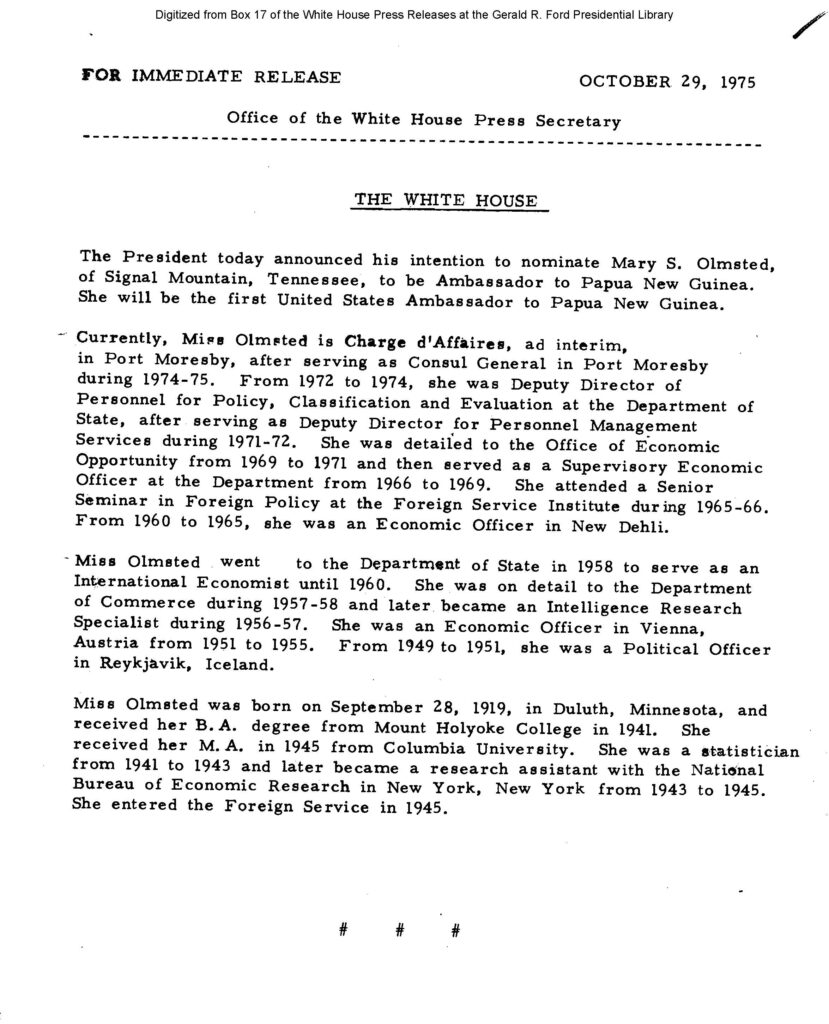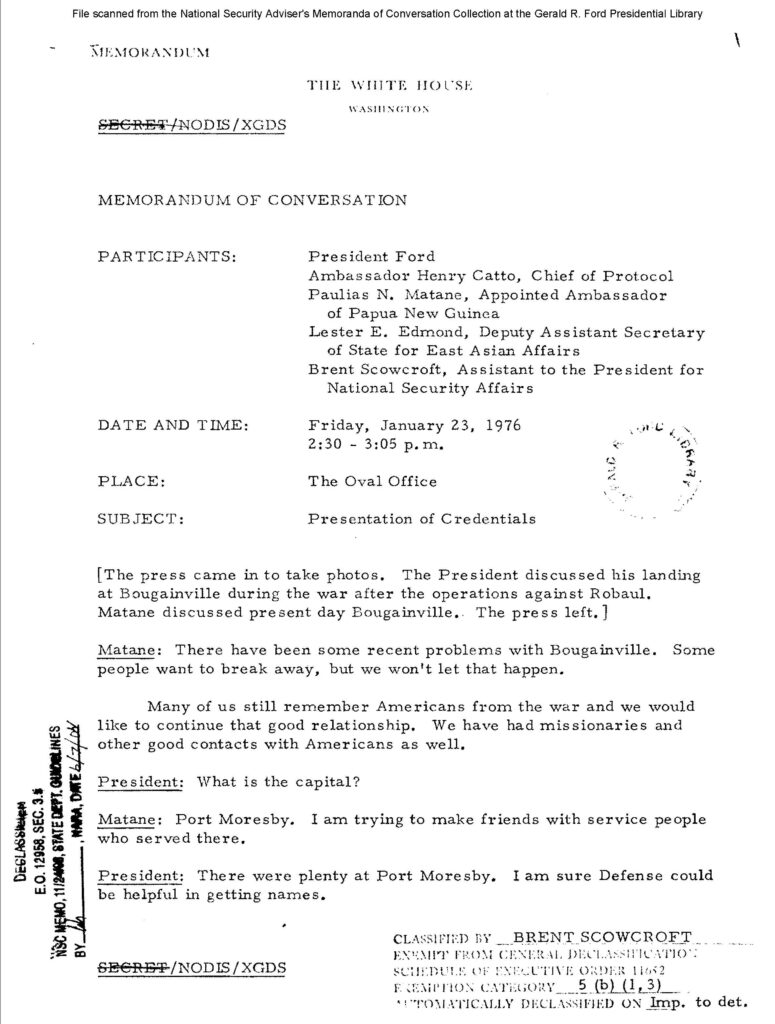Fifty years ago, Papua New Guinea became an independent country after having been controlled by Australia since the end of World War I. To mark the occasion, the State Department’s Chief of Protocol suggested a gift to the people of Papua New Guinea, and President Ford sent representatives to attend the official ceremonies in Port Moresby in his place.

Courtesy Gerald R. Ford Presidential Library

Courtesy Gerald R. Ford Presidential Library
One of those representatives would soon be nominated by the President to be the first U.S. Ambassador to the newly independent country: Mary S. Olmsted. A long-time foreign service employee, Olmsted had worked in countries such as Canada, India, Austria, and Iceland over the course of her career.

Courtesy Gerald R. Ford Presidential Library
Olmsted’s appointment to be the U.S. Ambassador to Papua New Guinea made her the fifth American woman to lead an embassy during the Ford administration.
This wasn’t President Ford’s first interaction with Papua New Guinea. While serving in the Navy, during World War II, one of Ford’s first combat experiences took place at the island. In An Ordinary Man, Richard Norton Smith discusses the USS Monterey’s “participation in a mass bombardment of Kavieng, a Japanese stronghold on Papua New Guinea.
Retaliation was swift and brutal. A holiday meal of baloney sandwiches was interrupted by an aerial assault featuring twenty or more Japanese attackers. One Zero barely cleared the flight deck of the Monterey before crashing into the sea, eliciting cheers from the embattled bluejackets. More raids followed, ‘as much action as I’d ever hoped to see’ in Ford’s words. The Monterey acquitted itself admirably. By the first week of January 1944, the ship and its crew claimed credit for downing eighteen enemy aircraft, while also sending a Japanese cruiser and destroyer to the bottom1.
In January 1976, President Ford reflected on his experience on the island with the new country’s appointed Ambassador Paulias N. Matane as Matane presented Papua New Guinea’s credentials.


Courtesy Gerald R. Ford Presidential Library
Author: Brooke Clement
- Smith, Richard Norton. An Ordinary Man. Page 95. ↩︎
